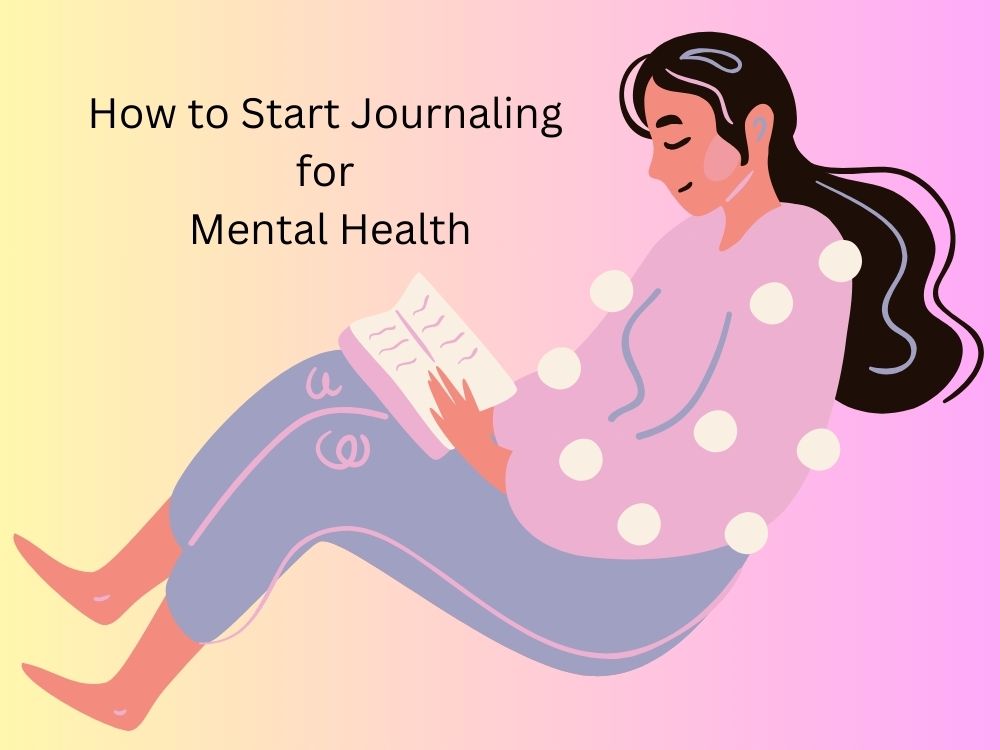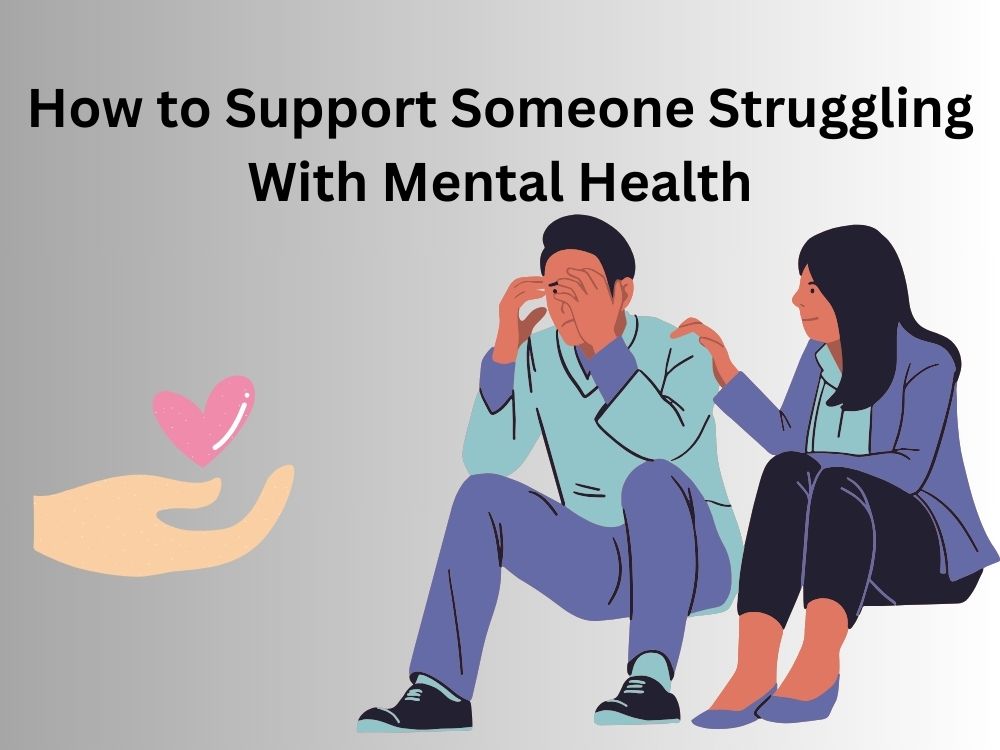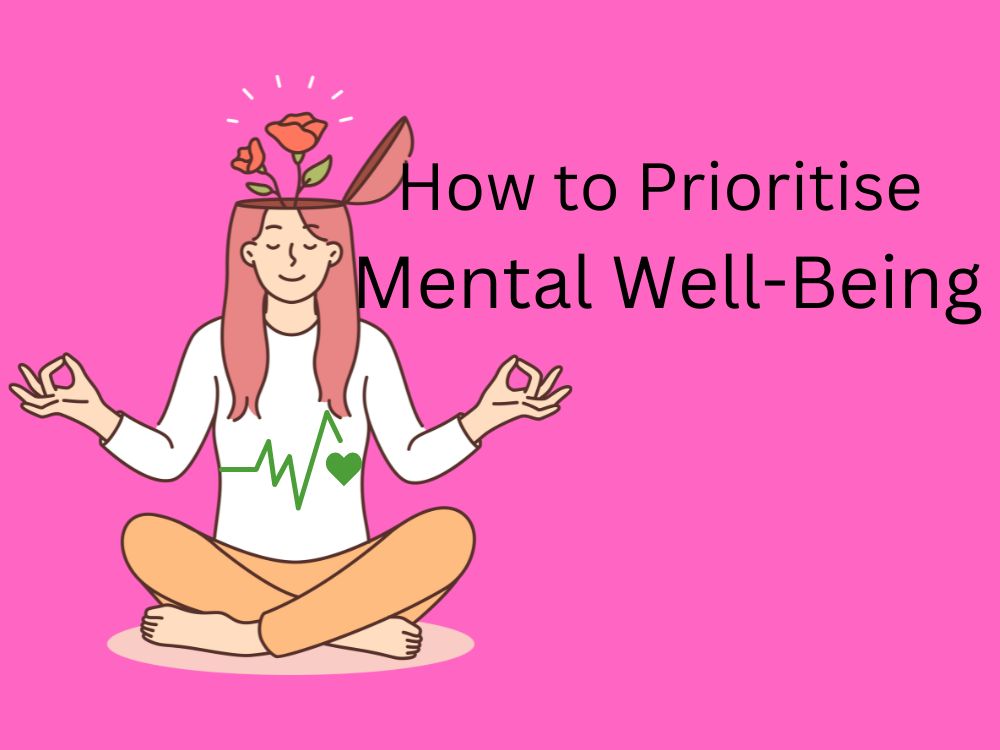We all have those days when our brains won’t shut up! One minute, we’re thinking about a conversation from three days ago, the next, we’re stressing over something that hasn’t even happened yet. A lot goes on in our minds, and sometimes, all we need is some clarity to think straight. That’s where journaling can help you. But before knowing how to start journaling for clarity and enhanced mental health, it’s important to understand what it is to help you utilize it better.
In this guide, we will lead you to what journaling is, its types, various ways, and ideas on what to write.
What Is Journaling?
Journaling is basically brain-dumping your thoughts so they don’t keep you up at 2 AM. It’s how you sort emotions, track your moods, and make sense of all the chaos in your head. It is a simple process of writing down your feelings and experiences to clear your mind and understand yourself better.
Journaling is different from keeping a diary.
A diary is like “Today I got Boba and went to the gym.” Journaling is more “Why do I feel so happy when I get Boba? Am I associating it with comfort or a core memory?” so, it feels more like self-therapy.
Is Journaling Good for Mental Health?
Writing about emotions has been proven to reduce stress, improve mood, and even boost mental flexibility. Even Kidlin’s Law states, “If you write a problem down clearly and specifically, you have solved half of it.”
There are some major benefits to start journaling for mental health:
- Declutters your mind: Bottling up emotions drains your energy. Journaling helps offload them so your brain isn’t loaded with too much irrelevant information.
- Breaks negative thought loops: Instead of replaying worries on a loop, journaling helps you challenge and change those thoughts.
- Helps you spot patterns: Maybe social media drains you, or certain situations trigger stress. Journaling helps you see what affects your mood.
- Creates a safe space for your emotions: No judgment, no filters, no need to have it all together. Just you, your thoughts, and a space to let it all out.
- Improves emotional awareness: Instead of just thinking “ugh, I feel weird today,” journaling helps figure out why you feel weird.
- Encourages gratitude and positivity: Even on rough days, journaling can help you find small wins (like “at least my coffee hit the right spot today”).
Types of Journaling
The best part of journaling is that there’s no one way to do it. It comes in different styles, each with its own benefits. Depending on what you need, you can choose a method that suits your mood for the day.
Here are some of the most popular types of journaling:
Reflective Journaling
This type of journaling helps you look back on your thoughts, emotions, and experiences to understand them better. It’s great for personal growth because it allows you to see patterns in your behavior, recognize triggers, and learn from past experiences.
Example: If you had a stressful day, write about what caused it, how you reacted, and what you could do differently next time.
Gratitude Journaling
Focusing on the good things in life can improve your mood and reduce stress. Gratitude journaling is about writing down things you’re thankful for, big or small. It helps shift your mindset from what’s wrong to what’s right.
Example: Each day, write three things you’re grateful for, like a good yapping session with your best friend, a delicious meal, or simply having a clean bed.
Bullet Journaling
This method combines journaling with organization. Instead of writing long paragraphs, you use short bullet points, lists, and trackers to organize your thoughts, emotions, and daily habits.
Example: You can track your mood, and daily habits (like water intake or sleep), or even set small personal goals in bullet format.
Visual Journaling
For those who prefer expressing themselves through art rather than words, visual journaling involves doodles, sketches, collages, or symbols to represent emotions. It can be a great way to process feelings when words don’t feel enough.
Example: If you’re feeling stressed, draw what stress looks like to you.
Manifestation Journaling
This type of journaling focuses on writing about your goals and dreams as if they’ve already happened. It helps you stay positive and motivated to work toward what you want in life.
Example: Instead of writing “I hope to be more confident,” write “I am confident and believe in myself every day.”
Stream of Consciousness Journaling
This style of journaling is all about writing without structure or overthinking. You simply put down whatever comes to mind, helping to clear mental clutter and process emotions. This is one of the ways you can know how to prioritize your mental health.
Example: Set a timer for 5-10 minutes and write non-stop about whatever’s on your mind. No need to make it perfect, just let the words flow.
Therapeutic Journaling
Therapeutic journaling involves using guided prompts to process emotions in a structured way. It’s often recommended in therapy for dealing with anxiety, stress, or past trauma.
Example: A common therapeutic journaling prompt is, “What’s one fear I have, and how can I work through it?”
Steps to Start Journaling for Mental Well-Being
Journaling sounds great in theory, but if you’ve ever stared at a blank page, you’d probably think, “What do I even write?”. The key to start journaling is to keep it simple, personal, and zero-pressure. Here are a few steps that can help start journaling for beginners.
Step 1: Pick Your Journaling Style
Before you even put pen to paper, decide what type of journaling feels right for you. Do you like structure, or do you prefer a free-flowing rant session? Choose from the styles we discussed above.
Step 2: Choose Your Medium
Some people love the feeling of a physical notebook, while others prefer the convenience of digital journaling apps. You can also record voice notes if writing feels too much. It’s all about what feels easiest for you!
Step 3: Set a Journaling Routine
Let’s be real, if you don’t make time for it, it’s not happening. Set a specific time when you start journaling, even if it’s just 5 minutes before bed. The key is consistency, not perfection.
Step 4: Set Your Intentions
Before you even start writing, ask yourself: “Why am I journaling?”
- Do you want to manage stress? → Try gratitude journaling.
- Are you trying to understand your emotions? → Reflective journaling is your best friend.
- Need to clear your mind? → Stream of consciousness journaling will help.
Setting an intention makes it easier to stay consistent and actually benefit from journaling.
Step 5: Journaling Your Thoughts
This is where most people get stuck. How to journal your thoughts when your mind feels like a chaotic mess? Start with a simple structure:
- Brain Dump: Write down everything you’re feeling without filters.
- Ask Yourself Questions: What’s making me feel this way? What can I do about it?
- Find Patterns: Notice any repeating emotions or triggers in your write-up.
- End on a Positive Note: Even if it’s just “I survived today.”
Step 6: Use Journaling Prompts
If you ever feel stuck, try using prompts to get your thoughts rolling. Some great ones include:
- What’s one thing that’s been on my mind lately?
- What’s something I’m grateful for today?
You can even find journaling apps or websites that provide daily prompts!
Step 7: Shift Perspectives
Now, take a step back. Imagine you’re giving advice to a friend in your situation. Or, think about your thoughts from a future-you perspective.
Example: Instead of “I always mess things up,” reframe it as “I’m learning from my mistakes, and that’s okay.”
Step 8: Re-read & Reflect
This is where the real growth happens. Every few weeks, go back and read past entries. You’ll start noticing patterns, what triggers stress, what improves your mood, and how much you’ve grown.
Do’s and Don’ts to Start Journaling
Journaling is all about expressing yourself, but there’s a fine line between making it a healthy habit and turning it into something that adds stress. To truly benefit from it, here are some do’s and don’ts that will help you get the most out of your journaling journey.
Do’s of Journaling for Mental Health
✔️ Write Like No One’s Watching (Because They Aren’t!)
Your journal is a private space. Write your uncensored thoughts, no matter how messy, emotional, or weird they seem.
✔️ Experiment with Different Formats
Not every day has to be a long emotional entry. Try lists, doodles, poems, voice notes, whatever feels natural at the moment.
✔️ Set a Safe Space for Journaling
If you live with others and worry about privacy, keep your journal somewhere secure, use a digital journaling app with a lock, or even write in code.
✔️ Use It as a Problem-Solving Tool
Stuck on a decision? Write out your options, pros and cons, and what your gut tells you. Seeing things on paper makes choices clearer.
✔️ Allow Yourself to Rant, but Also Reframe
Venting is healthy, but don’t let journaling become an endless loop of negativity. Try shifting perspectives, “This feels bad, but what’s one small thing I can do about it?”
✔️ Use Journaling to Track Emotional Patterns
Some emotions hit hard, but when you go back and read old entries, you’ll start noticing patterns. You’ll realize, “Oh, I always feel like this before a big change, but I get through it.”
✔️ Turn It into a Ritual
Light a candle, play soft music, make tea, whatever sets the mood. Making journaling feel special increases the chances of sticking with it.
Don’ts of Journaling for Mental Health
❌ Don’t Make It a Task on Your To-Do List
Journaling isn’t homework. If it starts feeling like a chore, change things up, switch to voice notes, try shorter entries, or take a break.
❌ Don’t Overanalyze Everything You Write
Not every entry has to be deep or meaningful. Some days, you might just write “I’m tired.” That’s still valid.
❌ Don’t Use It to Beat Yourself Up
Your journal isn’t a space to shame yourself for mistakes. If you notice negative self-talk, try to shift the tone.
❌ Don’t Write Only When You’re Upset
If you only journal in bad times, your entries will make it seem like life is always terrible. Try documenting small wins, random happy moments, or even funny things that happened.
❌ Don’t Worry About Being ‘Good’ at Journaling
There’s no perfect way to journal. Some people write essays, some just scribble one word. Some journal every day, others once a month. It all counts.
❌ Don’t Feel Obligated to Keep Everything
Wrote something too heavy? You can burn it, delete it, or tear it up. The act of writing is what matters, not holding onto every word forever.
Journaling Ideas and Prompts
If journaling feels repetitive, don’t worry you’re not alone. That’s why having a list of journaling ideas for mental health can make all the difference. Here are some fresh prompts to start journaling for self-improvement which will keep things fun and meaningful.
Self-Reflection & Personal Growth
- What is one thing I’ve learned about myself recently?
- What is something I used to believe that I no longer think is true?
- Describe a past version of yourself. How have you changed since then?
- If my future self wrote me a letter today, what advice would they give?
- What is one habit I want to build, and how would it improve my life?
Emotional Check-In & Processing
- What’s the dominant emotion I’ve been feeling lately, and what might be causing it?
- Write a letter to an emotion you’re struggling with, what would you say to it?
- If my worries were a person, what would they look like? What would I tell them?
- What is one thing I need to let go of, and what’s stopping me from doing it?
- How do I usually handle stress, and what’s one healthier way I could cope?
Gratitude & Positive Thinking
- What is something small but meaningful that made me smile recently?
- Who is one person I’m grateful for, and what would I say if I wrote them a thank you letter?
- What’s one thing I appreciate about myself that I don’t acknowledge enough?
Future Planning & Dreaming
- If money and fear weren’t an issue, what dream would I chase?
- What does my ideal life look like five years from now? Describe it in detail.
Make Journaling a Habit
Remember journaling isn’t about writing perfectly or having all the answers, it’s just you talking to you. Some days, you’ll have a lot to say, and other days, a single sentence will do the job.
So don’t overthink it. Just write, feel, and let your thoughts flow.
Make journaling a habit that works for you. Over time, it becomes second nature, a safe space to clear your head. The more you show up for your journal, the easier it gets.







